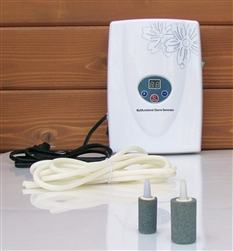When a denture wearer puts their dentures in their mouth, there is a small space between the base of the denture and the gums. With brand new dentures, the space is microscopic and once the dentures are in, the space fills with saliva, creating a seal that secures the denture to the gums.
 In time, though, the bone in the jaw wears away and gum tissue changes, increasing the size of the gap and changing the way the denture fits. If you aren’t careful and you let your dentures dry out or you soak them in too hot water, they can warp, which also changes the way they fit. As the gap between gums and denture increases, the denture becomes less secure and harder to keep in place, especially the lower denture, which is easily dislodged by the tongue.
In time, though, the bone in the jaw wears away and gum tissue changes, increasing the size of the gap and changing the way the denture fits. If you aren’t careful and you let your dentures dry out or you soak them in too hot water, they can warp, which also changes the way they fit. As the gap between gums and denture increases, the denture becomes less secure and harder to keep in place, especially the lower denture, which is easily dislodged by the tongue.
Denture adhesives were created to help fill in this space and hold the denture more securely. Denture adhesives help stick the denture to the gums, which increases the suction to hold the denture in place. Many denture wearers prefer adhesive pastes to powders, as they tend to be easier to apply and less messy.
Though denture adhesive does increase retention and holds the denture more firmly in place, it can also create a false feeling of security for the wearer. Denture adhesive is really little more than a temporary solution to poorly fitting dentures that could fit better if relined or replaced.
One of the big downsides of using denture adhesive is that adhesives are messy to apply. Adhesive should be removed and the denture and mouth both thoroughly cleaned at least once a day. The sticky adhesive can be difficult and messy to remove. Add in the cost of buying the adhesives on a regular basis, and one begins to wonder if there is a better alternative.
The good news is, there is a better way. New miniature implants can be installed that will provide superior denture stability without messy, costly adhesives. The new implants are easy to place using local anesthesia, and existing dentures can be refitted to snap securely into place.
Placing implants also helps to protect the bone in the jaw and slow its erosion. Increasing stability and protecting bone will both help to minimize friction sores which are commonly caused by dentures rubbing against the gums.


 Currently, I know that a number of you have been looking for ozonizers in order to follow my protocol (for prevention of gum disease). They can be found here:
Currently, I know that a number of you have been looking for ozonizers in order to follow my protocol (for prevention of gum disease). They can be found here: 
